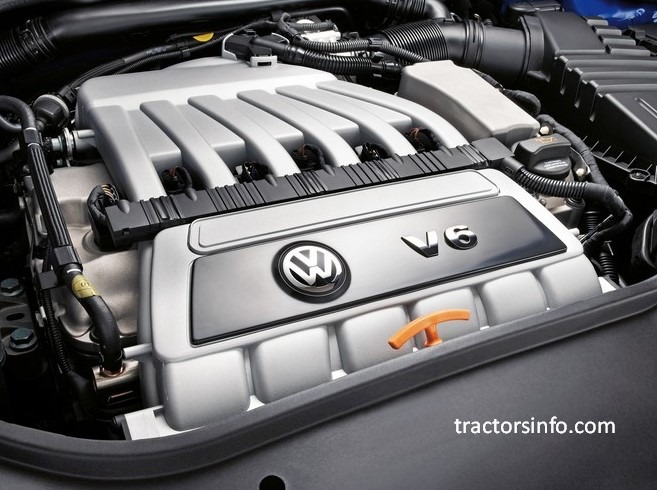VW/Audi R32 3.2 VR6 EA390 Engine Specs, Problems & Reliability
VW/Audi R32 3.2 VR6 EA390 Engine – Here in this post, I have taken all the details about VW/Audi R32 3.2 VR6 EA390 Engine from the (official site) including VW/Audi R32 3.2 VR6 EA390 Engine specs, Weight, Price & Dimension.
We believe to provide accurate details to our readers and we prefer only official sources for information about VW/Audi R32 3.2 VR6 EA390 Engine.
All the details which you want to know about VW/Audi R32 3.2 VR6 EA390 Engine you can find in this article which is updated.
VW/Audi R32 3.2 VR6 EA390 Engine
The VW R32 is a 3.2-litre VR6 naturally aspirated gasoline motor. It was popularized by the VW Golf R32 Mk4 and Mk5 models. The machine was also used in several Volkswagen and Audi cars. The R32 engine comes from Volkswagen’s EA390 Series.
One of the most well-known VR6 engines is the VW/Audi R323.2 VR6 engine. These engines are distinctive because VR6 engines have a slightly angled cylinder bank and a single head covering both of the cylinder banks.
In 1991, the Volkswagen Group introduced its first VR6 engine. Today, VR6 machines can still be found in production. From 1997 to 2006, Volkswagen also produced a five-cylinder VR5 motor based on the VR6.

VW/Audi R32 3.2 VR6 EA390 Engine Specs
| Production Run | 2003 – Present |
| Cylinder Head Material | Aluminum |
| Cylinder Block Material | Cast-iron |
| Configuration | VR6 |
| Bore | 84.0 mm |
| Stroke | 95.9.0 mm |
| Valvetrain | DOHC four valves per cylinder |
| Displacement | 3.02L (3189 cc) |
| Compression Ratio | 10.9 and 11.3 |
| Weight | 430 lbs |
| Maximum HP | 250 HP at 6,200 RPM |
| Maximum Torque | 236 lb-ft at 2,500 – 3,000 RPM |
VW/Audi R32 3.2 VR6 EA390 Engine Problems & Reliability
R32 engines have a few common problems. A serpentine belt tensioner failure is the main problem – it’s an Achilles’ heel. There have been reports of engine stuttering due to a coil pack problem.
People use R32 engines for racing on track days. High loads, high revs, etc. The flywheel bolts can easily be broken or unfastened by themselves. The engine’s fuel consumption could be more efficient, as you might expect.
The 3.2 VR6 engine is very reliable and trouble-free. Engine life expectancy is over 150,000 miles (250,000 km). It is incredibly smooth to operate and has a great sound.
Modifications
173 kW (235 HP) at 6,200 RPM, 232 lbft (315Nm at 2,950 RPM), This engine is for the Volkswagen Transporter T5.
BFH – 177 kW (241 hp), at 6,200 rpm. 236 lb/ft (320Nm), at 2,500-3.200 rpm. For the US market, application: VW Golf Mk4R32.
BML – 177kW (241 HP) at 6,250 RPM, 236lb-ft (312Nm) at 2,800-3.200 rpm. Application: Australian VW Golf Mk4 R32 motor.
BDB, BHE (250 hp), at 6,250 RPM, 236 lb/ft (320Nm), at 2,500-3,000 RPM. This engine features a lower compression ratio (10.85:1) and a different intake manifold. Application: Audi A3, Audi TT, VW Golf Mk5 R32.
VW/Audi R32 3.2 VR6 EA390 Engine FAQs
How much HP does a 3.2 VR6 have?
240 Hp @ 6200 rpm. 310 Nm @ 3000 rpm. 228.64 lb. -ft.
Is the Audi 3.2 a VR6?
The 3.2-litre engine was also used on the 2002-2004 Volkswagen Golf Mk4 R32 models and the 2003–2010 Audi TT 3.2VR6 quattro. Peak power output was 177 kW (237 hp), in the New Beetle and Golf engines (engine codes BFH/BML) and 184 kW (247 hp), in the Audi TT engine code BHE.
Does the R32 have a VR6 engine?
The R32’s heart is a 3.2-litre DOHC 24-valve variant of VW’s innovative VR6. This is the most potent version of the narrow-angle V-6 Golf has ever offered. It produces 240 horsepower at 6250 RPM and 236 pound-feet torque between 2800 and 3200 RPM.
Is the R32 a V6 or VR6?
The original VR6 engine was rated at 2.8 litres. However, the latest version (commonly found in the Volkswagen Golf V R32) has a displacement of 3.2 litres. A VR6 engine’s usual firing order is 1-5,3-6,2-4.
Is the VR6 a good engine to turbo?
The VR6 is a perfect choice if you love small engines but don’t like their lack of power. The VR6 can produce inline-4 turbo power while being smaller and more naturally aspirated. This is a dying art.